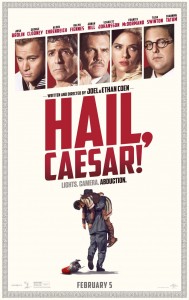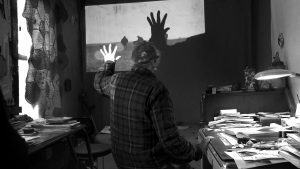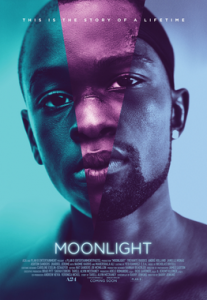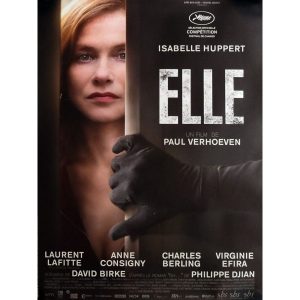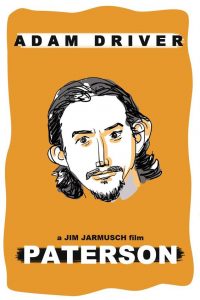I’m fortunate to know a group of people as passionate about film as I am. They’re students, programmers, filmmakers, screenwriters, bloggers, critics, and journalists. In this space, when I reference people I know whose opinions I respect—and who often hold positions contrary to my own—that’s who I’m talking about. The debates and conversations are always enriching.
As the year is wrapping up, I’ve invited them to contribute to Flaw In The Iris, and a few have kindly taken me up on it.
These are the questions I asked them to prepare for:
1 ) What are five features you enjoyed in 2016?
2) Name a film that was under-appreciated or under-seen, and why it deserves to have a higher profile.
3) If there was something you didn’t see enough of in 2016, what would you like to see more of in films in 2017? Or maybe a filmmaker who you miss? A cinematic wish for next year.
So far I’ve spoken to Nick Malbeuf, Hillary West, and Zack Miller.
My next conversation is with James Covey. He writes a cinema blog at coveyonfilm.net featuring weekly Halifax film screening picks—an intermittent outlet for his obsessions with 20th century Italian cinema and film restoration, preservation, and access. He used to cover the Halifax music scene for The Coast, CKDU-FM, and CBC Radio Two, and is now the web team director for Dalhousie University. This interview has been edited and condensed.
Flaw In The Iris: So, tell me. What are five movies you really liked this year?
James Covey: I took some time and I wrote them down on my note pad. I put them in the order that they were released. I didn’t want to figure out a ranking.
FITI: That makes sense. We are coming to it a little early. Here in Halifax, I’m not going to be writing up mine until January, until I’ve seen La La Land and Silence, a few of the late arrivals. That’s why I only asked for five from people, because I figured by now people could pick that many. I’ve probably got five myself.
JC: I realized that after I wrote my five, I picked two that I saw in the theatre, two I saw at the Atlantic Film Festival, and one that I saw at the Halifax Independent Filmmakers Fest. I didn’t plan it that way, that’s just how it broke down. There’s a couple on my list that may get a release in theatres but haven’t arrived in Halifax yet.
My first was Hail, Caesar! I felt it was one of the stronger Coen Brothers films in awhile. You know how everyone loves Pixar movies because on the surface they’re for kids, but they have all these references that adults really enjoy? I feel like Hail, Caesar! does that in a similar way. It’s sort of a comedy that’s funny, but if you’re someone that’s into film history and culture, there are all kinds of in-jokes that are bonus material that make it that much more enjoyable. It’s got a whole other level to it, and it doesn’t need that level to succeed, but it’s got that anyway. I wish more films were like that, rather than assuming you’re only speaking to a narrow band of people.
FITI: I think that’s what been so great about the Coens going back through their career. They’re naturally esoteric guys. Their passions are really outside of the mainstream and they indulge that, but they’re also aware they need to entertain. They might be well-versed in Golden Age Hollywood or slapstick, vaudevillian comedies might inform Raising Arizona, but that doesn’t mean you have to know them to appreciate the films. That’s what I’ve always loved about them. I laughed a lot at Hail, Caesar! It felt a little like Burn After Reading. There are a lot of idiots on screen, but it felt more sophisticated, a little less cynical.
JC: Yes, Burn After Reading gets most of its juice out of the sublime idiocy of the people onscreen, but Hail, Caesar! has some other things going on in it. The few touch-points that it has with reality, like an historic character they throw into the mix is Herbert Marcuse. It takes a second look at things that have become cliched, like casting a studio head in the role of hero instead of villain. It knows what it’s doing there, it isn’t a naive exercise. There is an engagement level to the film—it’s not just self-regarding fluff.
FITI: OK, so what else is on your list?
JC: I saw this at HIFF, the documentary Don’t Blink: Robert Frank. There was so much to like about that film for anyone who wants to see it. It’s kind of a no-brainer for people who are interested in film and photography and how it pertains to Nova Scotia That aside, I thought it was audacious in how it framed Frank. The soundtrack is amazing, the fact that the director used her connection with Frank’s producer to get use of all these songs, which goes way above the budget level for this film. Yes, he did that thing with The Rolling Stones, but really if you were going to do a slavish portrait of Robert Frank, the soundtrack would emphasize the jazz era, and everything that was going on with The Americans and Pull My Daisy, that stuff. It chooses to view that through the lens of rock and roll, in a non-trivial, really well-thought-out way.
It’s a film by someone who does owe a big debt to the person portrayed, since this director (Laura Israel) has worked so closely with him, but it felt like it had a lot more integrity than—and I hate to pick on it, but—Jim Jarmusch’s Stooges documentary. It felt a little too glossy. It didn’t really give fans the sort of dirt and chaos they wanted from a film about the Stooges. This film feels like a very honest take about someone who’s a significant artist, but also someone who’s gone through a significant personal tragedy. It deals with that in an interesting way.
FITI: I knew a little about Robert Frank’s work, but I didn’t know anything about his character. I enjoyed his irascibility as captured in the film. I think that’s what you want—the feeling you’re getting to know somebody. OK. Number three on your list, but continuing in order of release.
JC: Moonlight. I think it’s unavoidable for anyone who’s seen it. First off, I think right-wingers are going to hate this film, if they don’t already, given the way it normalizes homosexuality. It’s got that going on, but it’s also very successful in defamiliarizing urban African American experience—it doesn’t lean on cliches. And then it feels like this timeless romance. It’s got all those things going on. It feels very plugged into this moment, but consider it as a romance and it’s just as timeless as Casablanca, what have you. The test of time will prove whether that’s true or not, but this director is combining the influences of other filmmakers without being overwhelmed by them. You can talk about a mature technique in this, his second film. For me, the fundamental thing is it’s doing these incredibly difficult things with apparent ease.
FITI: It’s a film I think that deserves the accolades. And it’s interesting—since last year, the whole #OscarsSoWhite thing, I think the Academy has been looking for work that will show they’re not a bunch of conservative bigots. I’m really thrilled this film came along, because it’s genuinely good and worthy of the attention it’s starting to receive.
JC: Also on my list is film I saw at the Atlantic Film Festival, which is now in Canadian theatres but may not make it out here, and that’s Elle, by Paul Verhoeven.
FITI: I really hope it gets here. If it doesn’t, maybe Carbon Arc will try and screen it. I have to think with the attention Isabelle Huppert is getting for her performance, it has a chance to make it onto screens nationally.
JC: It’s not a completely unproblematic film. This is a year where there’s more awareness than ever of the pervasiveness of rape culture, and we’re nowhere near solving it. Here we’re talking about a film that structurally is a comedy about rape. In the classic sense of comedy—it’s a comedy, not a tragedy. There are some laughs in it.
FITI: This is one I haven’t seen. I missed it at the AFF. But I really want to see it. Verhoeven is a pretty provocative filmmaker.
JC: He always has been. He’s absolutely brilliant. He’s been out there taking every speaking opportunity in America he can lately. Clearly he wants to get back to Hollywood for another round. I really liked the film, though I do have some reservations about it. It’s not brilliant for having a lot of sexual violence in it, the film is brilliant for making her not a victim. It’s brilliant for Huppert’s performance. It wouldn’t be worthwhile without those things. I would love to see more non-cynical, hard-biting irony in blockbuster films these days, but I don’t think Hollywood is capable of that right now.
FITI: Maybe only on American cable TV.
JC: It feels like we’re living in a post-irony age. This is not Verhoeven’s moment, but this film is amazing proof that he hasn’t lost anything in that regard.
FITI: And your fifth pick is…?
JC: This film is getting a release just at the end of the year to qualify for awards, and it’s Jarmusch’s Paterson. If I had to pick a favourite this year, it would be this film. It doesn’t have the sweep of immediate relevance that some others do, but for me I felt a very strong personal connection to the film. This is the first one that foregrounds Jarmusch’s interest in poetry and literature to this degree. For me, it’s a film about people’s private, small-scale utopias, their private worlds, and the boundaries between those things and what we call the real world. The fuzziness of those boundaries and the preciousness of that activity. I think it handles poetry in a way I’ve never seen in cinema. It’s a breakthrough. It’s an excellent performance by Driver, and not a lot of plot. Plot isn’t the right thing for this film. But if you find the relative plotlessness of some of Jarmusch’s films off-putting, you might still like this one.
FITI: I’m with you, there. I found the film’s way of finding beauty in mundanity something really special.
JC: You could talk for hours about the clever ways he uses doubling in the film, how he sees twins everywhere, how he’s a bus driver named Paterson, driving the Paterson route in the city of Paterson. And the film is not an argument that the world is filled with twins. But it is an argument for finding the wonder in the crazy things we see every day. It goes about that in an interesting, indirect way. And it doesn’t seem hobbled like some films that take a literary approach to things and don’t feel fully cinematic.
FITI: Was there something a little under the radar that you think deserve more attention?
JC: That’s funny, because I chose films like Don’t Blink: Robert Frank, and that’s pretty under-the-radar. But I would single out Rams. It was theatrically released in February this year and it’s on Netflix Canada now. I figure why not pick something people can easily find now?
I love everything about the film and it represents all the reasons I got into watching international film in the first place. It’s a legit portal into a world you will otherwise never encounter: Feuding brother Icelandic sheep farmers. It is funny and tragic by turns, it is incredibly well photographed. It’s a fantastic story. It’s such a trip. I read and heard somewhere that Iceland can only afford to publicly fund one film a year, so it’s quite a competition. I looked it up: Rams made $150 K at the box office in the States this year, so I think it counts as under-the-radar.
FITI: And what’s your wish for 2017?
JC: My wish for 2017 boils down to my interest in preservation and access. We had a huge setback and a huge win in that department locally this year with the closing of Video Difference and the acquisition of the collection by the libraries and Dalhousie. So great to see it prominently available for borrowing now. A lot of us film nerds would like to see Filmstruck (the American cinephile streaming service) come to Canada.
I know it’s not that simple. The smaller a film is, the more the rights regimen is likely to vary from country to country. It’s so complex. I think there’s a way forward for us in Canada. I think Criterion has it figured out. Physical media is not totally going away in the near future. However, streaming services are a big part of people seeing otherwise hard to see films. TV channels are another way. Those three ways are going to be with us for the foreseeable future, and Criterion has properties in all three of those media: They’ve got discs, they have a channel, and they have Filmstruck. And they can do that because the United States is big enough.
What is the hope for Canada? I think TIFF needs to take the lead on this. They’re out there acquiring libraries of 35 mm film, they’re raising funds for their new universal library, they identify themselves as having a restoration, preservation, and access mandate. There needs to be a TIFF classics Blu-Ray and DVD label. And channel, and streaming service. In Canada that needs to happen with federal money. It won’t work otherwise.
FITI: Yeah, especially if they’re serious about archiving Canadian film. What an opportunity that would be.
JC: Yes, and this is how they’d access Canadian funds. There are all these classic Canadian films that lots of people have fond memories of, and TIFF bangs on about every time they shine their spotlight on the subject of classic film heritage. Future generations aren’t going to have those memories unless those films are available to be seen. And Criterion is never going to put out the full Guy Madden or Atom Egoyan. They might do one or two. Right now you can get most of Atom Egoyan’s films on Blu-Ray if you have a European region Blu-Ray player. That’s ridiculous, right? Someone needs to get creative and form a partnership with TIFF and Telefilm and anyone else who has a stake in this.
FITI: I had a conversation with Andrea Dorfman recently. I asked where I could find her 2014 film Heartbeat. She kindly offered me a copy, but otherwise it’s very hard to find. She mentioned some Canadian libraries will have it because there is an organization that’s been in touch with her, trying to source copies for libraries. And speaking of local filmmakers, not long ago I also went looking for a copy of Scott Simpson’s 2003 film Touch & Go, his charming Halifax-shot romantic comedy starring Ellen Page and Jeff Douglas, scripted by Michael Melski. I had to borrow a copy from the director so I could see it.
JC: The UN has identifies preservation and access as a global issue. Film rots, and every time we have a change in media we lose a chunk of our stock, of our heritage. It’s no small matter. If I could even see signs of progress on that front, that would grant me my 2017 wish.






